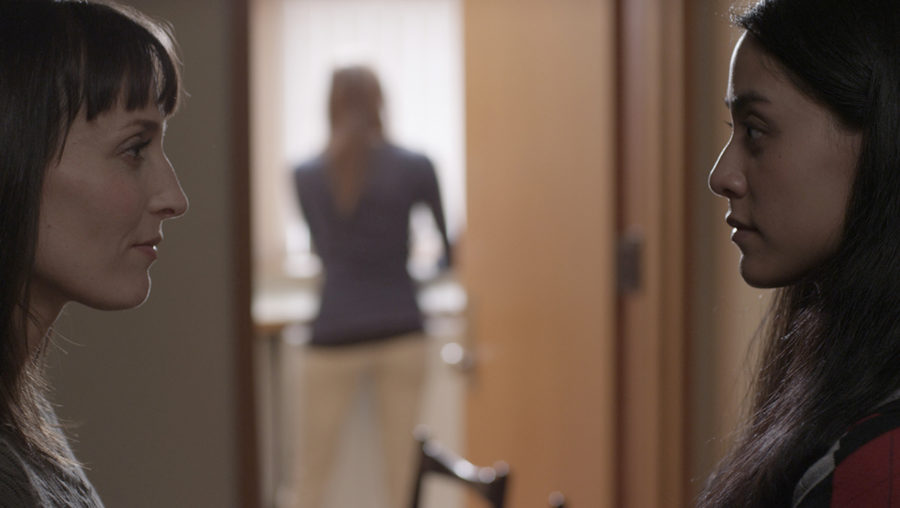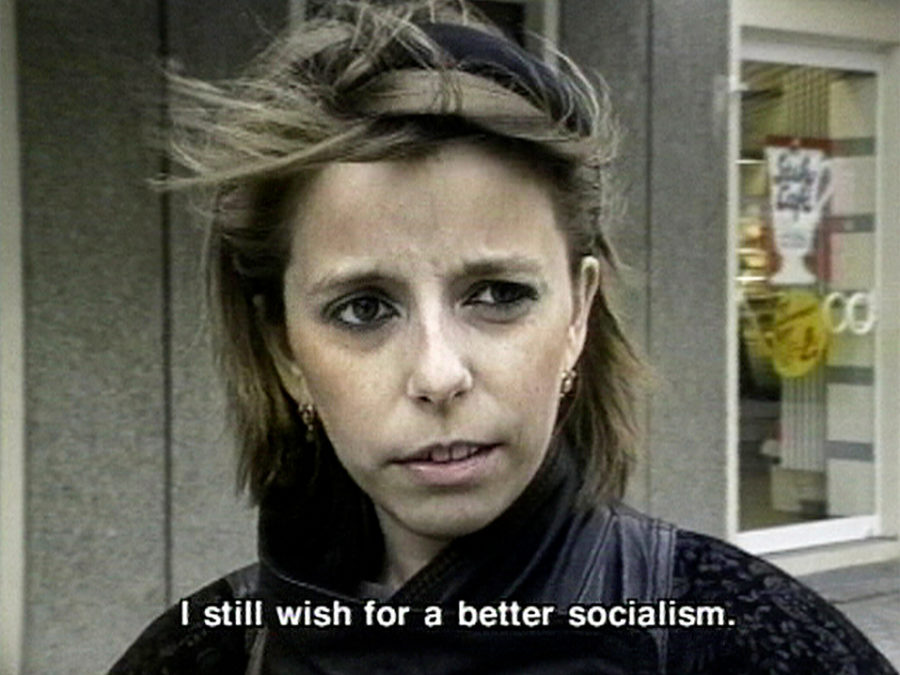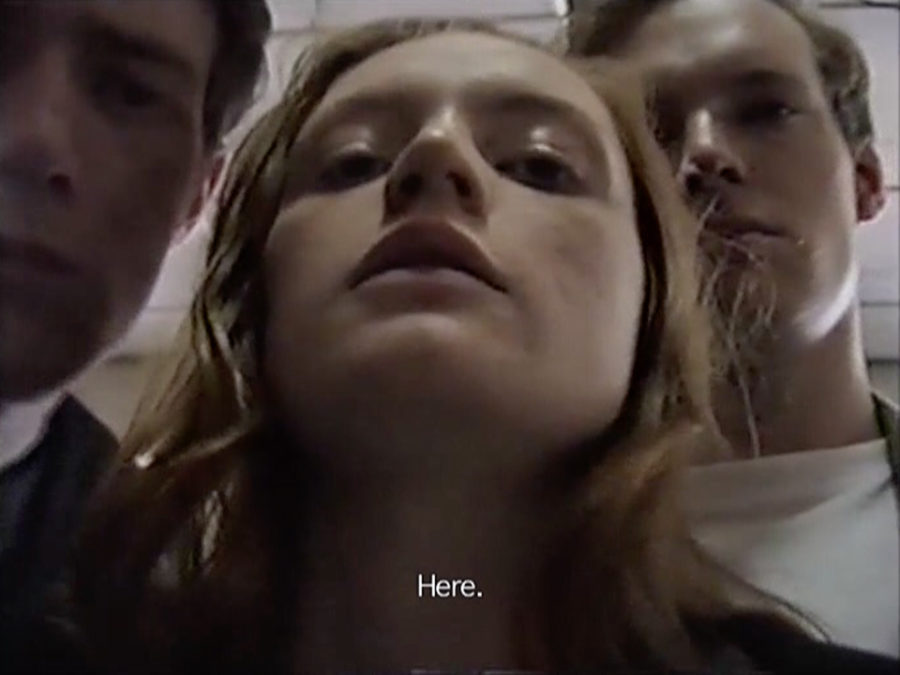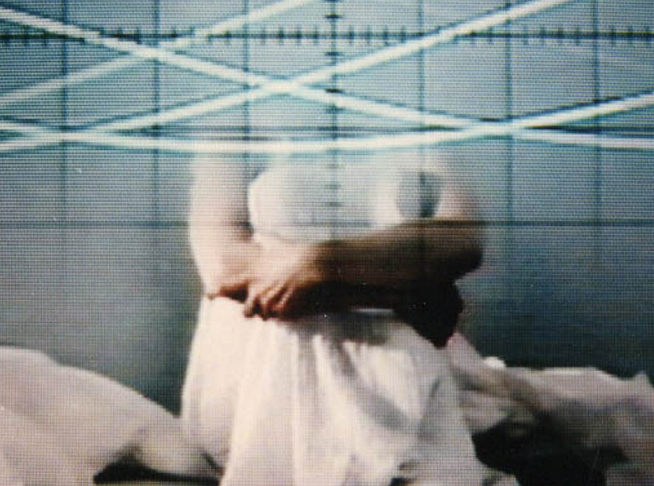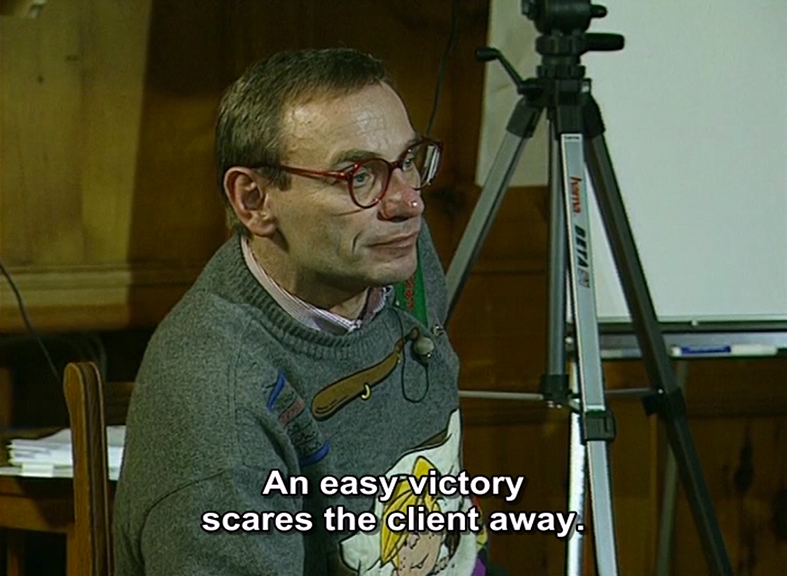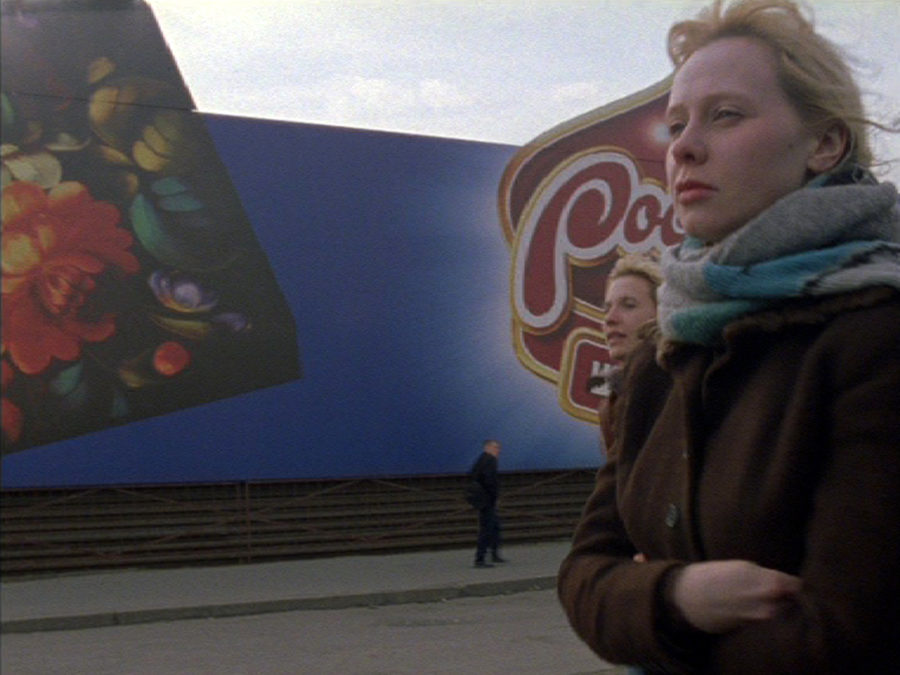The Common Sense (2014) by Melanie Gilligan is an experimental narrative drama in the style of a television miniseries consisting of fifteen episodes. As with her previous video works, Crisis in the Credit System (2008), Self-Capital (2009), and Popular Unrest (2010), this long-form video piece uses drama and fiction to contemplate broader social, political, and economic issues. The story of The Common Sense evolves around a new technology that allows people to feel one another’s embodied experience, physical sensations, and emotions: ‘The Patch.’ The film spans the period of a decade and will show its social and political effects over time. Jasper Bernes describes the film’s narrative and epistemological dimensions as follows:
“The film is science-fictional and future-looking, but at the same time partly retrospective with regard to its future world: half of its narrative unfolds in the future perfect tense through the device of a film-within-the-film that looks back to a prior moment of biotechnological transition, the emergence of a bidirectional rather than unidirectional ‘patch’ linking mind to mind directly. A small lozenge that fits in the mouth, ‘The Patch’ is a technology of empathic ‘entrainment,’ allowing people to experience each other’s feelings directly. In the future world of the film’s beginning, the faces of students attending university periodically glaze over as they ‘log in’ internally to handle various tele-cognitive tasks. As with every technology in capitalism, entrainment is first and foremost a means of increasing the productivity of labor, a managerial technique allowing control of employees at an almost ontological level. […]
One of the more savage ironies of the final turn of events in The Common Sense is that the ‘new organ’ – the evolutionary precipitate of entrainment technology – occurs in ‘patch rejection’ cases. How, then, can the patch be overcome if its rejection simply makes it an irremovable part of us? Are we left, again, with the functionalist interpretation of capitalism’s energies? […] Are human community and community of capital once again finally the same? […] Perhaps the film is less about the impossibility of our own escape from capitalism than it is about our difficulty visualizing and projecting this escape in the present.”
Extract taken from: Jasper Bernes, Capital and Community: On Melanie Gilligan’s trilogy (2015), essay
Melanie Gilligan works in a variety of media including video, performance, installation, and music. She completed a BA (Hons) in Fine Art at Central Saint Martins in London, and was a Fellow at the Whitney Independent Study Program in 2004–05. Gilligan regularly contributes to publications – including Artforum, Texte zur Kunst, Mute Magazine, and Grey Room – and sees critical writing as an essential part of her artistic practice.
